“It was the first time these people had seen the face of charity, by the presence of a Catholic priest.”Fr. Christopher Hartley is a missionary priest who seeks to serve Christ among the most needy. He ministered to Haitian sugar cane workers in the Dominican Republic from 1997 to 2006. For 13 years, he served the Hispanic population of the Bronx. And he has worked for many years with the Missionaries of Charity, Mother Teresa’s sisters. Today he is ministering in Ethiopia, from where he has written us this tragic appeal:
~
Lent 2017
Dear Friends of the Mission,
For the last year and a half, not a drop of rain has fallen in Gode and the Somali region of Ethiopia.
Here everything is dying.
It is dramatic to see people arrive at the rickety hospital of Gode, by any means of transport, including carts driven by donkeys, carrying squalid and dying patients.
People arrive with their last breath and sometimes they die within in a few minutes, in the hands of helpless doctors, because of the magnitude of the tragedy.
It is so sad and heartbreaking to see the fields devastated by the drought. Here nothing grows, neither corn, nor soybeans, no cereals, here everything is swept away by gusts of wind in giant clouds of dust that soil and clothe it in coats of gray.
Every morning when I leave the house, before dawn, to celebrate the Holy Eucharist, I see the dead cattle on the roadside … cows, goats, sheep … The stench is dreadful and the spectacle so terribly sad.
At this time, all that Gode breathes is death and desolation.
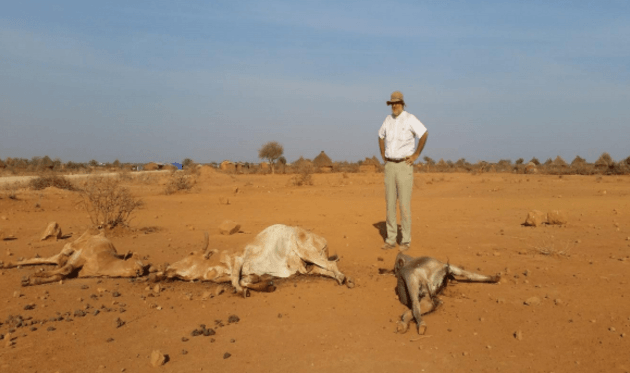
For a few months now, we have had a young English doctor working with us. He spends mornings and afternoons at the public hospital. Thanks to him we are receiving firsthand information on the magnitude of the drama that these people are experiencing.
Thursday, March 2, he warned us that an unusual number of patients were dying (in fact, the first six of them died in the Gode hospital that afternoon), brought from the Afder area, whose capital is Hargele.
We soon learned that the problem was that, because of the desperation to bring water in trucks to the most remote villages, some NGOs had taken water from a dam near the city of Hargele, which was completely polluted and infected.
This particular NGO was the Islamic Relief Service.
That same night I loaded the off-road vehicle of the mission with all the medicines that we had at that moment at our disposal and at 5:00 am last Friday I went to Hargele. It was 230 kilometers (143 miles) of terrible road. Before 10 in the morning, I was already in the hospital of the city. I met the medical director and gave him the medicine. It was very sad to hear this man, Abdisalem Mohamed, tell of the tragedy of all those hundreds of people who came every day infected with terminal typhus.
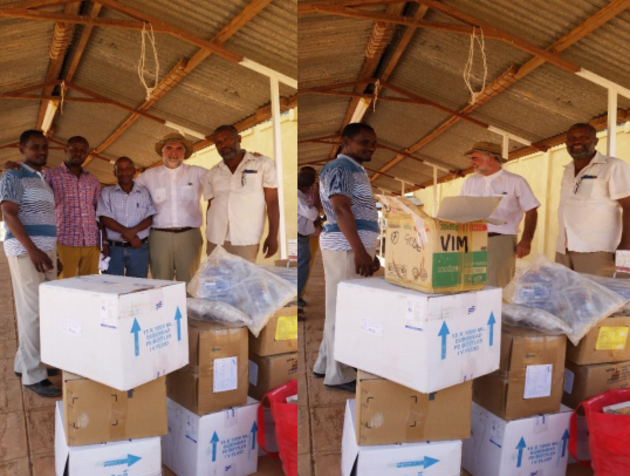
He accompanied us to visit some of the patients. Above all, seeing the children was heartbreaking. The anguish of the parents who had already seen their children die by the cursed polluted water of the NGO. The director begged us, almost on his knees, to try to send more medicines and food for the patients.
In these days when the whole Church, as a faithful bride of Jesus Christ, accompanies his way of the cross through the countless painful paths of this world, it is not difficult to recognize the face of the Passion of Christ in the small macerated bodies of these children.
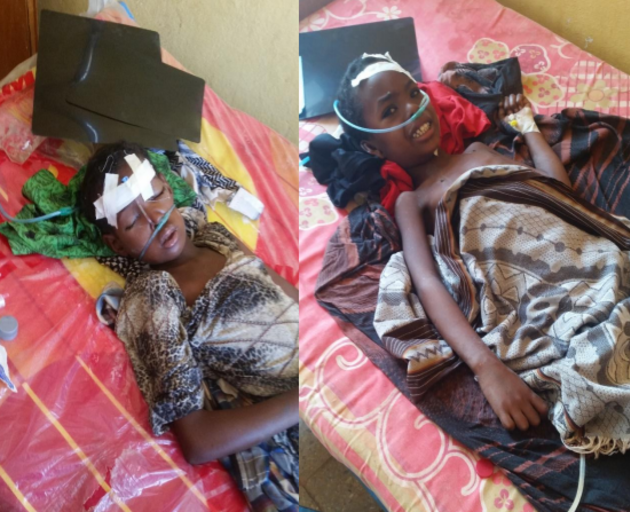
By mid-morning, I decided that it was imperative to look for the villages from where the sick people arrived, to really understand the problem. What no one had told me was that there was no real roadway to get to those settlements. So, with the 4×4 ready and gritting our teeth, we trudged those 40 endless and unforgettable kilometers (25 miles).
We finally arrived drowned in dust from head to toe and scorched with heat. The people immediately swirled around us to tell us about their tragedy. We went to the polluted well and saw the putrid water that had caused so much death and desolation.
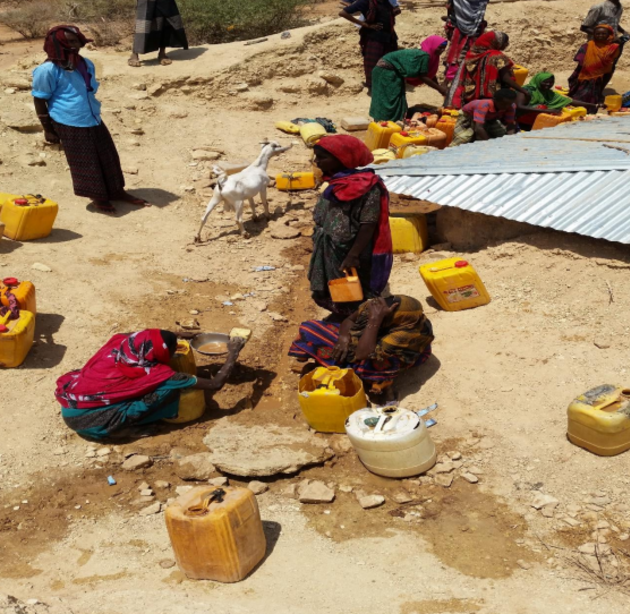
The men of the town told us details of the tragedy and asked for urgent help: drinking water, food and medicines. I promised to help them in what was within the reach of the Church.
On the way, we saw many animals that had died of thirst and starvation. People said to us: “Abba (Father), when the camels are dying of thirst is when we do not have much life left.”
I asked to visit the sick who were too seriously ill to be taken to Hargele Hospital. They showed me a cabin in which several sick people lay on the ground.
There were two very young boys in ragged white nurse robes. I asked them about the symptoms. “Do they have a fever?” I asked. One bowed his head in embarrassment and said, “We do not know because we do not have a thermometer.”
I gave them the few medicines we still had and some clean water. We had to return to Gode and we had more than five hours of road. You feel so powerless, so disturbed inside when you see these scenes … You simply ask “Why?” Why these people, why do millions of people live like this? Why while this woman does not even have a thermometer, other women spend a fortune on an absurd cosmetic surgery?
We live in a crazy world. Definitely.
As we made our way back from the villages to Hargele, out of nowhere, from behind the bushes, came children running behind our vehicle, screaming at us with despair written on their faces, “biyo, biyo, biyo” (water in Somali).
We distributed more than 15 bottles of water, through the window of the vehicle, to shepherd children.
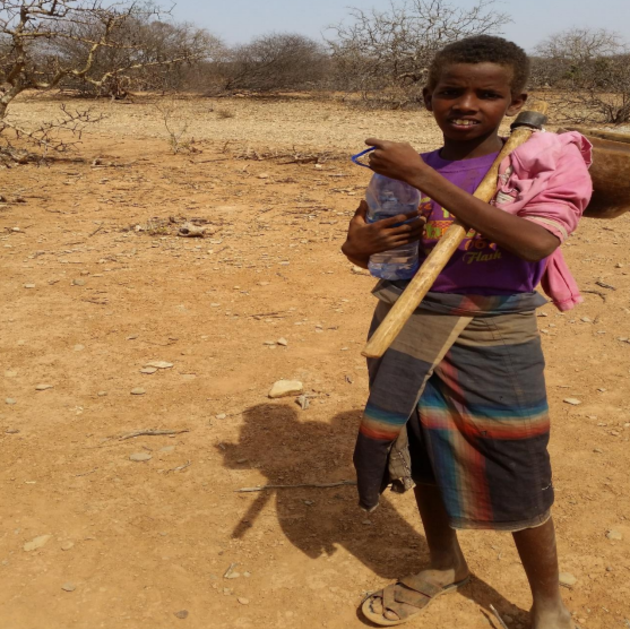
We still had a five-hour drive back to Gode. I thought of all the water I had seen in my life: rivers, swimming pools (my house, for example…), ponds, beautiful fountains of so many cities, lakes … As much water as I had seen … water that no one will ever drink, water for the fun it, even water parks! Water for the aesthetic adornment of a square … And seeing desperate children, running after my car begging a liter of water … It seemed all so grotesque and absurd …
What a world we live in!!
And everywhere, dead animals, in a state of putrefaction, under a merciless sun of more than 45 °C (113 °F). Fertile ground for the spread of anthrax and many other contagious diseases, so dangerous for the survival of these poor people.
Before a spectacle like this, one does not know, what to think, or what to say, or what to do …
My head was spinning, while I was thinking of solutions, of the help that could befall them.
The medicines that we still need are: Ceftriaxone IV, gentamicin IV, ringer lactate, DNS, normal saline, 40% glucose, oral amoxicillin, ciprofloxacin, levofloxacin, norfloxacin, co-trimoxazole, ibuprofen syrup, paracetamol syrup, amoxicillin syrup.
If we had the resources, we could transport them to the Hargele hospital from Gode, as most of these drugs are accessible here. We would need funds to pay for the fuel for our vehicles coming and going to emergency areas and, finally, funds to buy basic food.
On the way back, I thought, with profound emotion, amidst the horror I had seen that day, that it was the first time these people had seen the face of charity, by the presence of a Catholic priest.
It was the first time in history that the Catholic Church had reached the Somali area of the Afder. And I thanked God that, as St. Paul says: “He trusted me and entrusted this ministry to me.”
And it came to mind the words I had just meditated on in previous days of our Holy Father Pope Francis in his message of this Lent:
[…] Lazarus teaches us that other persons are a gift. A right relationship with people consists in gratefully recognizing their value. Even the poor person at the door of the rich is not a nuisance, but a summons to conversion and to change. The parable first invites us to open the doors of our heart to others because each person is a gift, whether it be our neighbor or an anonymous pauper. Lent is a favorable season for opening the doors to all those in need and recognizing in them the face of Christ. Each of us meets people like this every day. Each life that we encounter is a gift deserving acceptance, respect and love. The word of God helps us to open our eyes to welcome and love life, especially when it is weak and vulnerable. But in order to do this, we have to take seriously what the Gospel tells us about the rich man.[…].
I returned home dead tired and broken with grief from what my eyes had seen. From the very moment I arrived at the mission again, I have not stopped turning around what can and should be done as the Church of Jesus Christ that we are. Witnesses of the merciful love of God, who is Father and loves each one of these people. These people may be non-existent people, irrelevant to the world. Perhaps their tragedy is at best a mere statistic. Not for God, not for the Church.
They are people whose faces come out of anonymity in the encounter with a missionary Church, always ready to go further, where no one has reached. The Church is the only one who can see in all this tragedy that every life, every face, is an icon and transparency of the crucified Lord.
I beg you for the love of God to please do everything in your power to help us. Any help, however small or seemingly insignificant, may help save a life.
I am the voice of those who have no voice, or have only a drowned groan, like a lump in the throat, a shrill groan, where they not only have no water, but have no more tears to cry.
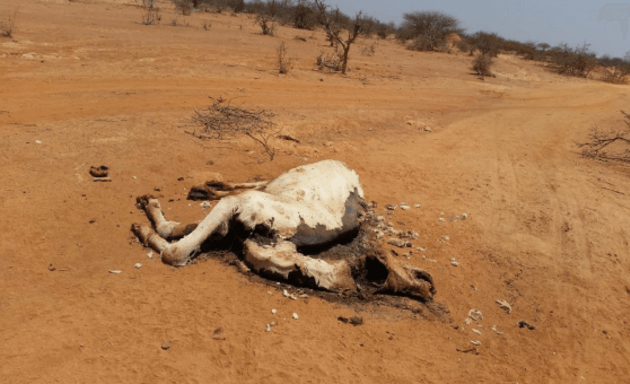
The Church, like Our Holy Mother Mary, always walks with her Son, who in the painful via crucis of the life of these dusty paths, falls and rises again and again. Sometimes she has things to give, other times empty hands (I well know it!). But hands empty or full, the Church will always walk in each missionary, adhered as a mother and bride, to the crucified body of her Son in each one of the brethren.
Every day in every Holy Mass I offer in the paten and chalice, the death and the life of these poor people. In that same offering, I offer each one of you, who with your charity, clothe the naked with us, give drink to the thirsty with us and feed the hungry with us.
For God’s sake, help us as much as you can!
Before the Tabernacle of the mission we pray for all of you and with Our Lady, Queen of the Missions, we ask that she hide us under her blessed mantle.
We wish for all of you a Lent in which our hearts be torn, so that we may bear fruits of conversion, sharing with the poor so much that we can all spare.
With my blessing to all,
Fr. Christopher
To collaborate with Gode’s mission, click here.








